Taking the knee origins in Mesopotamia - research
- Published
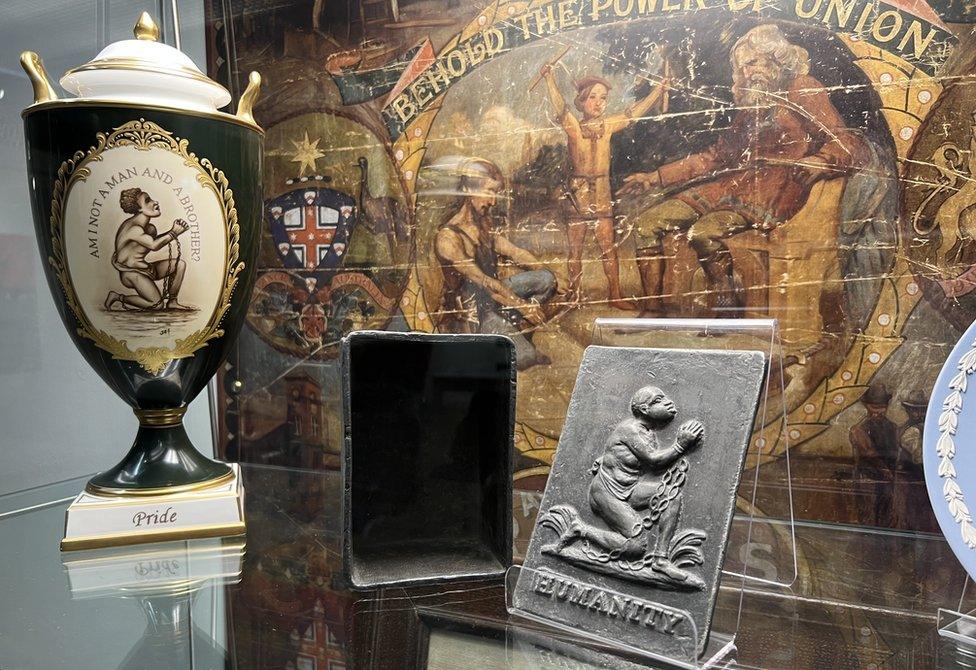
Researchers have been studying the history of taking the knee and their findings are on show in an exhibition in Hull
Taking the knee has become a widespread global gesture against racism but academics now say its origins date back to the Mesopotamian era.
Researchers have been studying the history of the gesture following protests for racial equality since the death of George Floyd in 2020.
The University of Hull's Dr Nick Evans said taking the knee thousands of years ago was "a sign of deference".
Their findings have gone on show at the Streetlife Museum in Hull.
Dr Evans, a senior lecturer in diaspora history, said antiquities from the British Museum showed how ancient civilizations in Mesopotamia, Egypt, Greece and India all adopted the gesture for different reasons from power and respect to political protest.
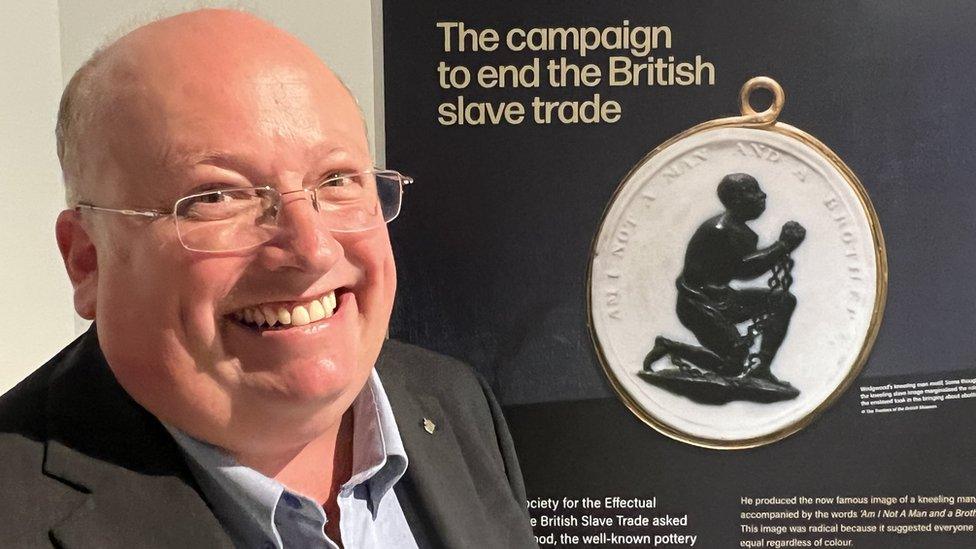
Dr Nick Evans led a team of researchers who found "that taking the knee has a much richer history going back to ancient civilizations"
Later in the 18th and 19th Centuries it was symbolic in showing support and solidarity for the British slave trade abolitionist movement, which began in the 1770s and was led by William Wilberforce.
"Many people are unaware that taking the knee had actual historical significance," said Dr Evans.
"Over time people have normally taken the knee before 1787 as a sign of deference, they defer to a political elite, someone perceived as being more powerful - normally a political leader, a monarch, a knight, a noble.
"Since 1787, people have taken the knee to show solidarity about racial iniquity at home and abroad. The campaign to abolish the British slave trade used an enslaved African man taking the knee as a tool to mobilise popular support for the anti-slavery campaign."
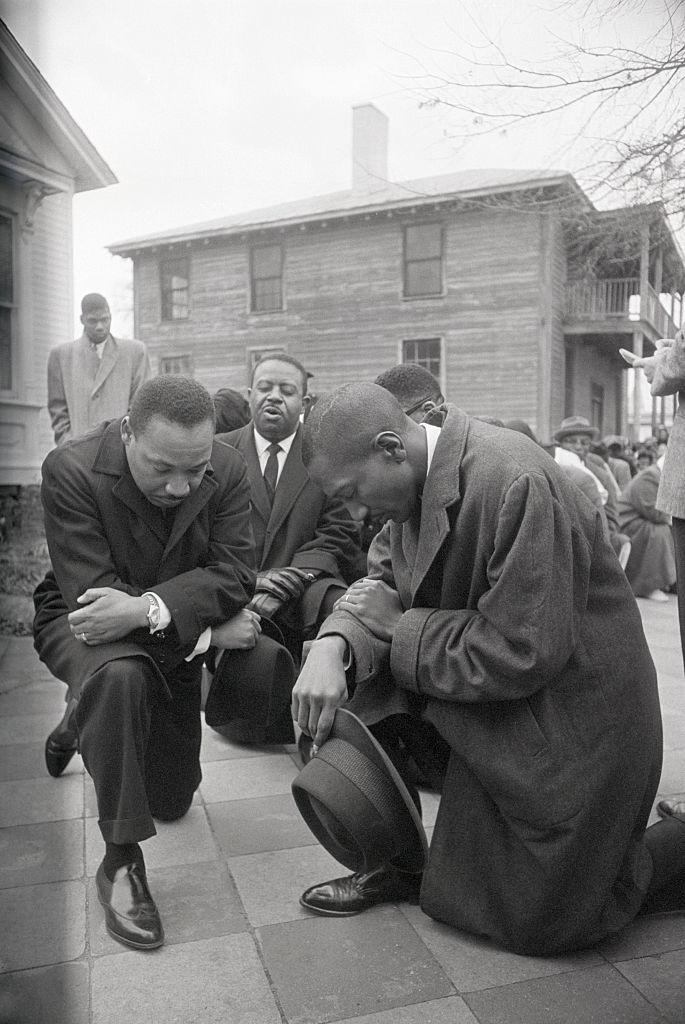
Martin Luther King Jr led a group of civil rights activists to take a knee in prayer after being arrested while campaigning for voting rights in 1965
Dr Evans said modern usage of the gesture varied from proposing to a partner and receiving an honour from the monarchy to raising awareness of racial injustice.
"Taking the knee as a symbolic movement has a global resonance in all societies, in all cultures and therefore it became more perplexing to us that people are surprised today when people take the knee and then oppose that."
Since May, the academic has led a team of researchers from the university's Wilberforce Institute and Hull Museums, alongside volunteers from community groups to explore "this forgotten story of how taking the knee was a global protest movement with a very rich history".
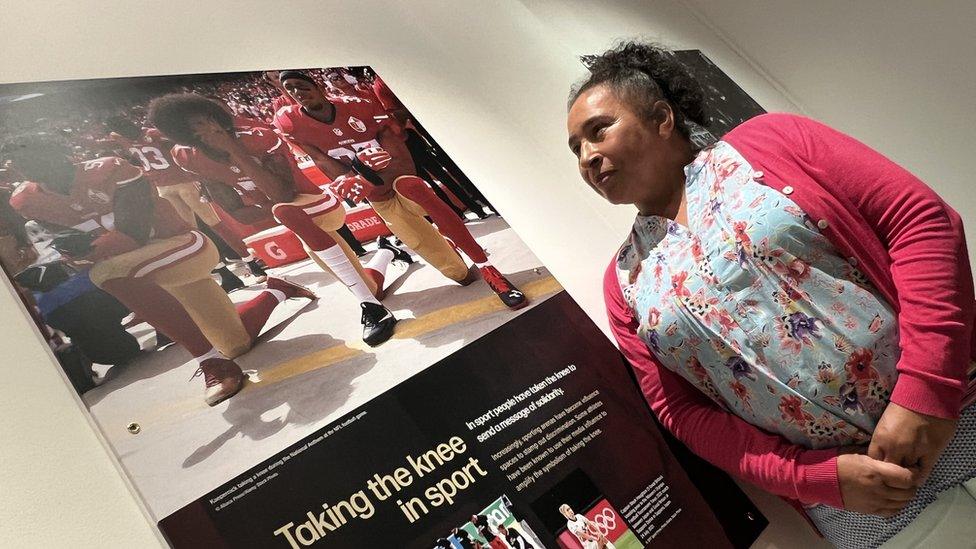
Karen Okra said taking the knee was about "challenging the norm and societal injustices"
Karen Okra, an activist who was among the researchers, said she had taken the knee in anti-racism demonstrations and as a symbol of challenging societal injustices.
"For me it's personal and it's moving because as a person of colour who's not always accepted within the wider community and within my own people, whether it be class, gender or in different situations.
"If taking the knee saves peoples lives and it makes people feel that they literally are equal, that for me is a movement that I think could work for the better."
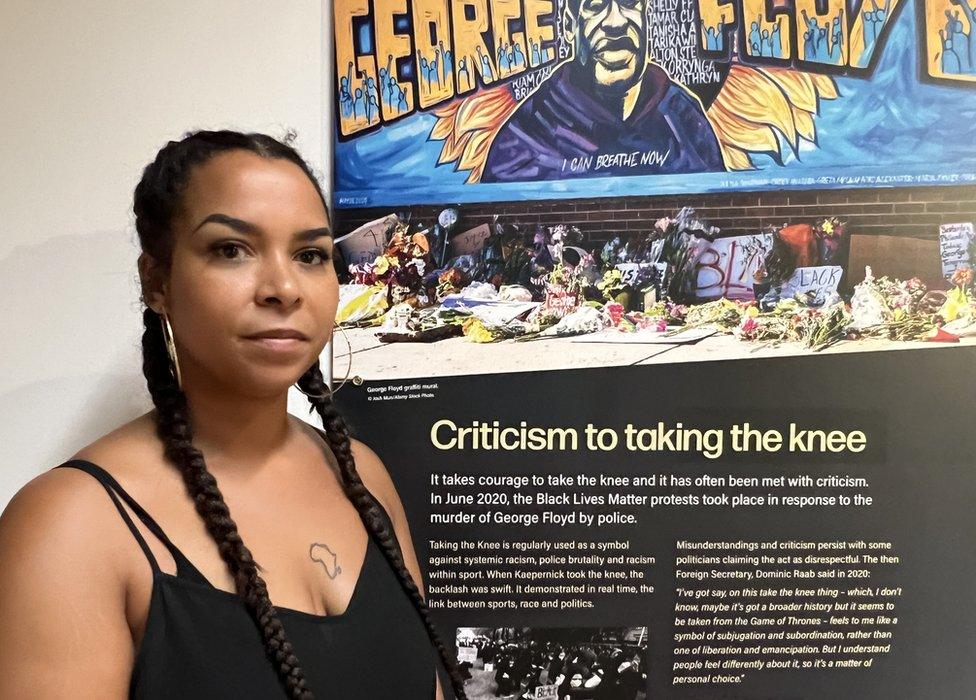
Stella Munthali said people were "still uncomfortable with others taking the knee"
Stella Munthali, founder and director of The Black Heritage of Hull, said she also felt the gesture was a "symbol of community healing and anti-racism".
"Taking the knee is a very important symbol and act for me," the 35-year-old said.
"I think knowing there's such a rich history about it and knowing that people are still uncomfortable with others taking the knee, I think shows that we still have a major problem and we still have a long way to go."
Among the images on display in the exhibition is a photograph of protesters taking the knee alongside a serving police officer.
Over the weekend, the home secretary launched a review into police impartiality, citing officers taking the knee among the contentious issues.
Ms Munthali said: "Anti-racism is not a political agenda.
"Anti-racism is a human right and everybody deserves to be treated equally and it's got nothing to do with politics and it shouldn't be used as a weapon."
The Taking the Knee exhibition runs at Hull's Streetlife Museum until 1 November.
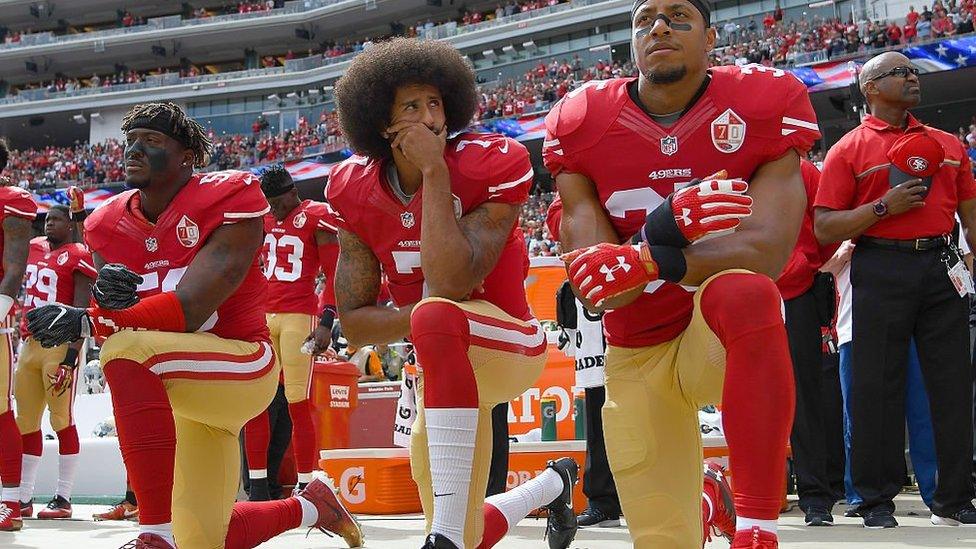
Colin Kaepernick (centre) began taking a knee in 2016

Follow BBC Yorkshire on Facebook, external, Twitter, external and Instagram, external. Send your story ideas to yorkslincs.news@bbc.co.uk, external.
Related topics
- Published21 November 2022
